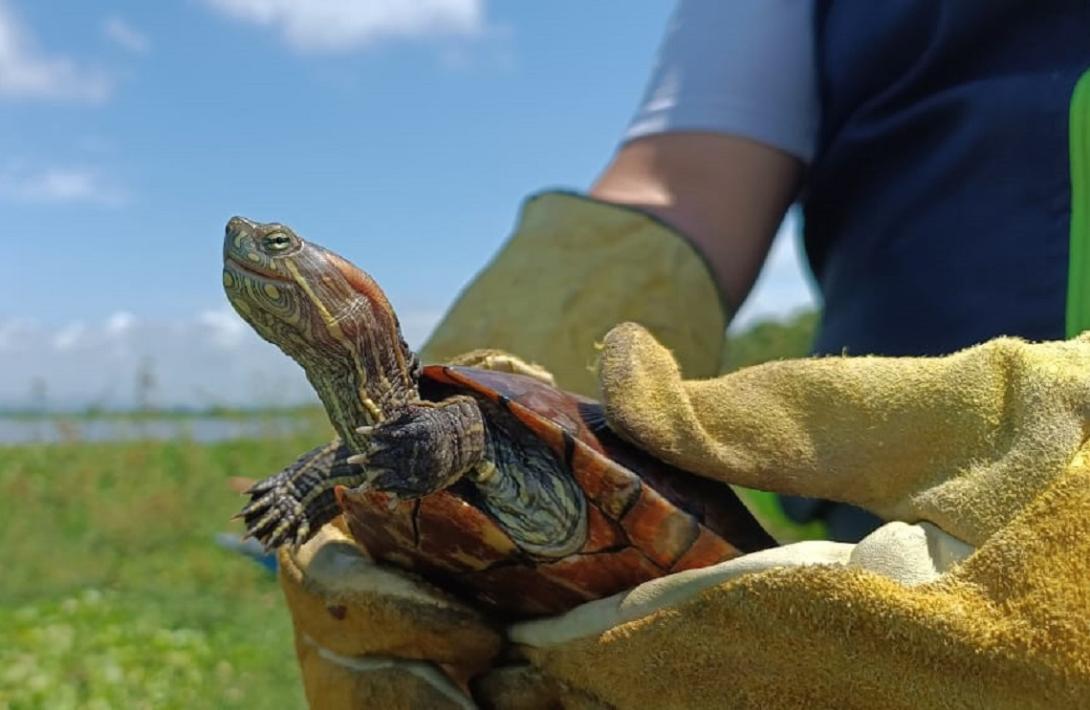The Colombian Navy, within the framework of a joint and coordinated operation with Colombian National Army, the Police and the environmental authorities, reported the recovery of more than 400 animals and the arrest of three individuals, for their alleged connection with the crime of wildlife trafficking, in the vicinity of the banks of the Magdalena River, specifically in El Mata Caña, municipality of El Banco, department of Magdalena.
During this operation, Navy Infantry units of the Colombian Navy recovered 300 hyacoteas (Trachemys callirostris), 100 lizards (Caiman crocodilus fuscus) and three chigüiros (Hydrochoerus hydrochaeris), specimens of wild fauna, which were being transported in precarious conditions and which, apparently, were going to be illegally traded. According to initial estimates, the value of these specimens in the illegal wildlife market could exceed 300 million pesos.
This operation was carried out in the context of the Easter season, a time when cases of illegal wildlife trafficking and commercialization historically increase, so the authorities are on high alert in order to protect the ecosystems of the region and prevent their exploitation. The rescued specimens were handed over to the corresponding environmental authorities, who will take care of their veterinary assessment, specialized care and eventual rescue into their natural habitat.
It is important to warn about the risks involved in keeping wild animals as pets, because this illegal practice can generate the transmission of diseases to humans and causes a high level of highlight and suffering in the specimens, being separated of their natural environment. In the same way, the meat of these specimens, which are not suitable for human consumption and have not been preserved under an adequate cold chain, can cause serious health consequences such as poisoning, parasitic infections and zoonotic diseases, derived of the decomposition and proliferation of bacteria in poorly handled foods. That is why these behaviors represent a serious danger to public health and to the conservation of biodiversity.
Source: Press – Navy of Colombia

